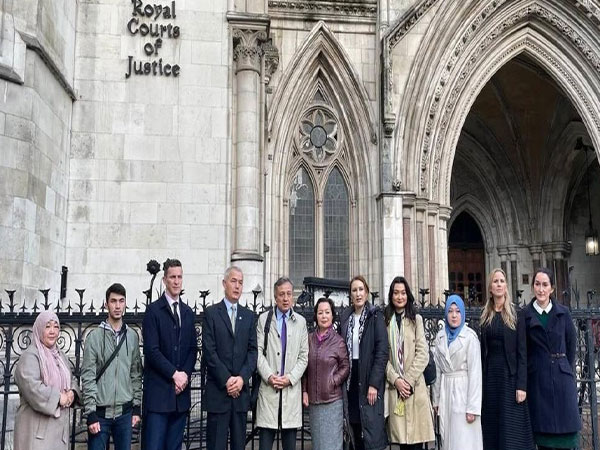London: Court of Appeal rules UK retailers liable for importing Uyghur forced labour goods
The court's ruling establishes that businesses can be prosecuted under the Proceeds of Crime Act if they import goods knowingly linked to criminal circumstances, such as forced Uyghur labour.

- Country:
- United Kingdom
In a landmark decision, the UK Court of Appeal has deemed unlawful the UK National Crime Agency's refusal to investigate the importation of Uyghur forced labour cotton from China. This ruling, secured by the Global Legal Action Network (GLAN) and the World Uyghur Congress (WUC), represents a pivotal shift for UK retailers. It confirms that companies importing goods produced under forced labour now face substantial legal risks. The court's ruling establishes that businesses can be prosecuted under the Proceeds of Crime Act if they import goods knowingly linked to criminal circumstances, such as forced Uyghur labour. This case marks the first successful legal action to disrupt supply chains complicit in the genocide of Uyghur and other Turkic peoples in Xinjiang, China.
A statement from the Global Legal Action Network noted, "This is the first case in the world involving Uyghur forced labour to successfully disrupt supply chains complicit in the ongoing genocide of Uyghur and other Turkic peoples in East Turkestan / Xinjiang, China. Companies must now clean up their supply chains or risk prosecution." The Court of Appeal overturned a prior High Court judgment from January 20, 2023, which had upheld UK authorities' refusal to employ the Proceeds of Crime Act 2002 against the importation of cotton produced by enslaved Uyghurs. The High Court's decision had allowed importers to acquire forced labour goods without prosecution, provided they paid the market price.
GLAN and WUC's legal team, including representatives from Bindmans LLP, Red Lion Chambers, and Temple Garden Chambers, challenged this stance. They aimed to redefine the relationship between retailers and goods produced through atrocities. Their groundbreaking hearing in the High Court on October 25-26 was the first time Uyghur representatives addressed this issue in a foreign courtroom. The Court of Appeal's judgment now mandates that UK companies must ensure their supply chains are free from forced labour or risk prosecution. The British government acknowledges that the Proceeds of Crime Act applies to companies importing cotton from Xinjiang, categorizing such cotton as 'criminal property' obtained through forced labour and crimes against humanity. Hence, any UK entity knowingly acquiring such cotton commits a money laundering offence.
This case also revisits the UK's Foreign Prison-Made Goods Act 1897, which prohibits importing goods produced in foreign prisons. This is the first time this 19th-century law has been tested in English courts, underscoring its relevance in contemporary human rights issues. The Court of Appeal's decision sets a precedent with potential global implications, influencing legal actions and corporate practices worldwide. (ANI)
(This story has not been edited by Devdiscourse staff and is auto-generated from a syndicated feed.)
ALSO READ
Baloch Yakjehti Committee decries alleged civilian killing by state death squad, terms it genocide
China Criticizes EU's Unprecedented Probe into Auto Supply Chains
East Turkistan Government in-Exile condemns China's village name changes as cultural genocide
ILO and GIZ Expand Project to Enhance Grievance Mechanisms for Workers in Serbian Supply Chains
Stop Uyghur Genocide Challenges Shein's London Listing Over Labour Concerns










